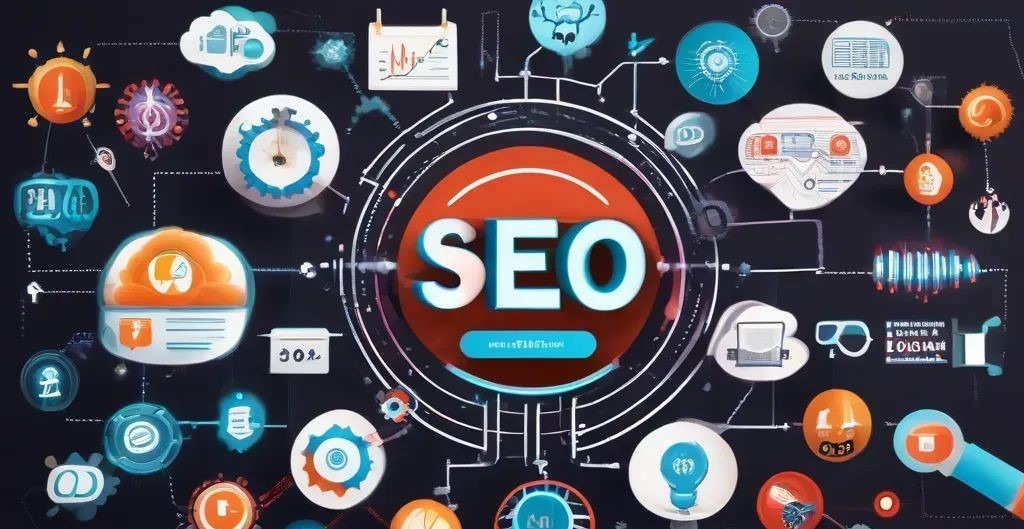In the current digital era, with the online market being extremely competitive, having a strong online presence is essential for both individuals and businesses. Search engine optimization (SEO) is one of the best strategies to increase visibility and bring in organic traffic to your website. This in-depth manual will examine the nuances of search engine optimization (SEO), including its importance, tactics, difficulties, and potential future developments.

Introduction to Search Engine Optimization (SEO)
Optimizing a website to rank better in search engine results pages (SERPs) is the goal of search engine optimization, or SEO. Search engine optimization (SEO) helps websites become more visible and draw in relevant organic traffic by matching their algorithms.
Understanding Search Engines
Sophisticated algorithms are used by search engines to index and rank online pages according to a number of criteria, including user experience, authority, and relevance. Well-known search engines such as Google, Bing, and Yahoo provide access to a massive amount of information on the internet.
Key Elements of SEO
On-page, off-page, and technological optimization are the three pillars of search engine optimization. Optimizing individual web pages with pertinent keywords, meta tags, and high-quality content is known as on-page SEO. Building backlinks and increasing the website’s authority through external referrals are the main goals of off-page SEO. Technical SEO focuses on a website’s backend elements, including crawlability, mobile friendliness, and site speed.

Benefits of SEO
Using SEO tactics that work increases website traffic, improves conversion rates, and builds brand credibility, among many other advantages. Search engine optimization allows businesses to become leaders in their market and draw in quality leads by ranking highly in search results.
Common SEO Strategies
The foundation of SEO is keyword research, which directs optimization and content development activities. Material optimization is the process of creating pertinent, high-quality material that appeals to the intended audience and includes specific keywords. Getting backlinks from trustworthy websites is known as link building, and it increases reputation and authority. In order to meet the needs of an expanding mobile audience, mobile optimization makes sure that websites are responsive and available on all devices.
SEO Tools and Resources
Many tools and resources are available to help with SEO efforts. These include Ahrefs for in-depth SEO audits and link analysis, Moz for tracking backlinks and domain authority, SEMrush for thorough keyword research and competitor analysis, and Google Analytics for tracking website performance.
Tips for Effective SEO
Businesses should concentrate on producing excellent, pertinent content that fulfills user purpose and adds value if they want to thrive with SEO. Content that is updated frequently maintains its relevance and freshness, indicating to search engines that the website is authoritative and active. Businesses may improve their strategy and stay ahead of the competition by keeping an eye on performance metrics and being current with industry trends.

SEO for Small Businesses
Local SEO is crucial for small businesses since it draws in local clients who are looking for goods or services in the area. Small companies can improve their visibility in local search results and draw customers to their physical locations by making improvements to their Google My Business listings, obtaining local citations, and obtaining good ratings.
SEO for E-commerce Websites
Through better user experience, site navigation, and product page optimization, SEO may be extremely beneficial for e-commerce businesses. E-commerce websites can improve their chances of showing up in relevant search results and generating conversions by using schema markup, optimizing product descriptions, and expediting the checkout process.

SEO for Content Creators
Since great content is the cornerstone of successful optimization tactics, content authors are essential to SEO. Content writers may draw in organic traffic and position themselves as authorities in their particular sectors by researching keywords and creating interesting, educational content that answers user inquiries.
The Future of SEO
With technology always developing, SEO has a bright future ahead of it. With the ability to predict user behavior and provide personalized search experiences, artificial intelligence (AI) and machine learning algorithms have the potential to completely transform SEO. The emergence of voice and visual search means that SEO methods will have to change accordingly. Furthermore, as search engine algorithms change, they will reward websites that prioritize accessibility, relevancy, and speed while placing a greater emphasis on the user experience.
To sum up, search engine optimization (SEO) is still a vital component of digital marketing because it allows companies and people to improve their online presence.